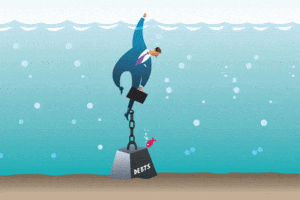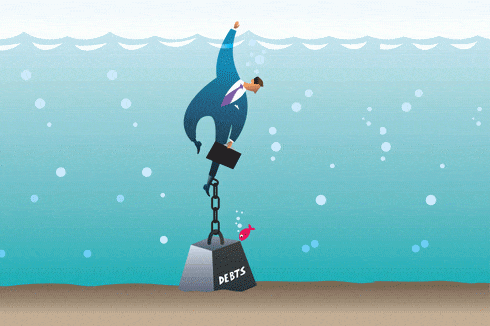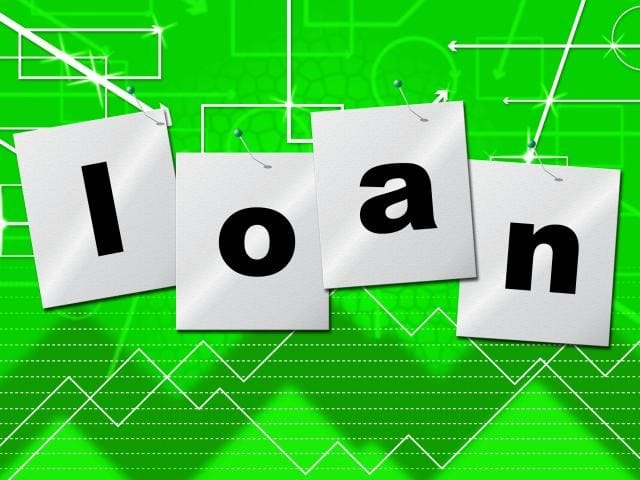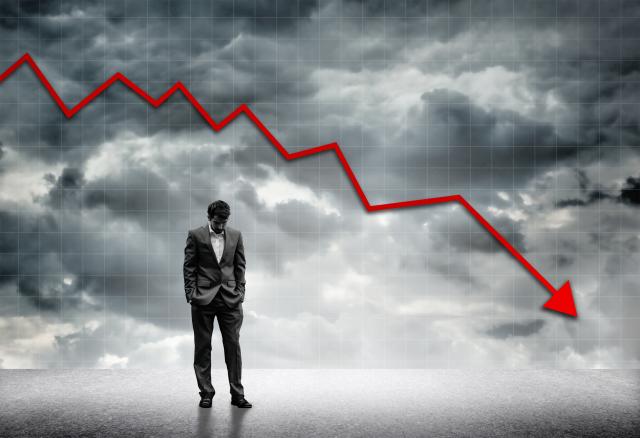 Debts are sometimes inevitable in life. For most people, it would be next to impossible to own a home, a car, pay bills or even get an education without credit. Federal Bank of New York released a report that put household debt and credit at $13.29 trillion in the second quarter of 2018.
Debts are sometimes inevitable in life. For most people, it would be next to impossible to own a home, a car, pay bills or even get an education without credit. Federal Bank of New York released a report that put household debt and credit at $13.29 trillion in the second quarter of 2018.
Do people end up repaying all these debts? Unfortunately no; many people are up to their necks in debt and quite a large number of them are doing nothing towards repayment. There are numerous reasons why many people stay in debt. Here are several:
Living Beyond Means
This simply means that you are spending more than you are bringing in. If what you are earning cannot comfortably cater for house and car payments, insurance, other fixed costs and house expenses, then you cannot afford that kind of a lifestyle. It is even worse if you freely use your credit cards to pay for what your income cannot support. What happens is that debts start accumulating and accruing interest month after month and before you know it, you are swimming in debt with no way to escape.
Spending Without a Budget
According to a recent study, only 41% Americans use a budget. This means that most people cannot track their spending habits leave alone plan for the future. Without a budget and with several credit cards at your disposal, it is easy to spend your money uncontrollably and end up depending on credit as you wait for the next pay. The repeated cycle leads to failed repayments which consequently increases the outstanding debts.
Job Loss or Reduced Income
Having a job gives you the confidence to use credit knowing that your income is able to cover the repayments. Should you unexpectedly lose the job, it becomes impossible to make your repayments which may also attract additional interests and penalty fees. Even if you end-up getting another job, it is possible that your credit card debts will have soared to levels that you may no longer sustain. Similarly, a pay-cut or reduced income may also make you lag behind on your repayments leading to accrued debts.
Unwillingness to Sacrifice
If you are deep in debt and you still fight to maintain the same life style, chances are that you will never repay your debts or worse still, they will keep increasing. The ability or inability to save for debt repayments may depend on your willingness to forego a few things like holidays, cable, birthday gifts, a big house and a luxurious car among others. The question is; are you willing to make the sacrifice?
Struggling to Keep up Appearances
It is just human nature to want to fit into certain statuses set by the society, family, friends etc. In an effort to fit, you may end up spending beyond what you can sustain with your income. Unfortunately, the demands may keep going higher and higher and unless you can tell yourself to stop, you will be up to your neck in debt within no time. The fact that you are keeping up appearances means that things are not good financially in the first place so unless you win a lottery or come into some huge cash, you will stay in debt for a long time.
Financial Illiteracy
In a quest to understand how financially literate the world is, people were asked 4 simple questions regarding risk, inflation and interest. Out of 150,000 adults from over 140 countries, only a third could answer 3 out of the 4 questions correctly. If you have no idea of how credit works, you keep on making mistakes that will increase your debts in the long run. Such include; late repayments, carelessly requesting for credit top-ups, and falling for the wrong lines of credit among others. This also comes with the inability to manage the credit hence leading to heaps upon heaps of debts.
Final Take
While it is normal for people to find themselves in debt at some point or another, not all of them end up paying. The reasons why many people stay in debt range from genuine ones to outright selfish ones. Debt accumulates little by little and before you know it, you are too debt ridden to do anything about it. On the other hand, with proper planning, a little sacrifice and commitment, it is possible to disentangle yourself from the debt cycle one step at a time.




